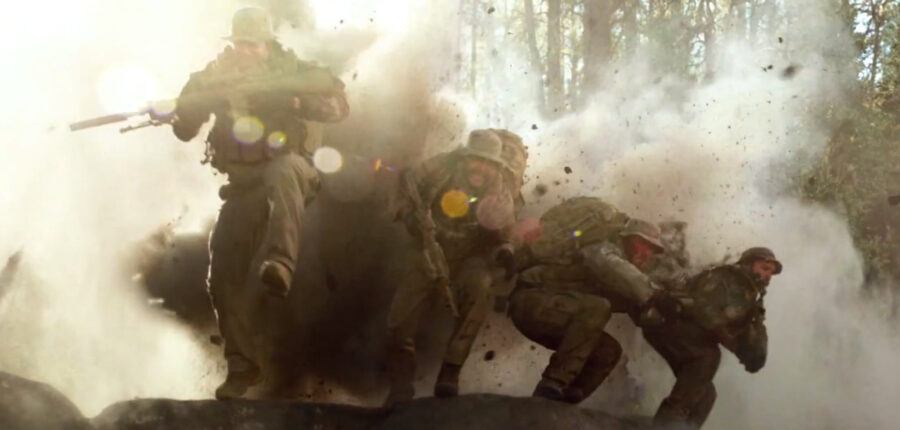“This f-ckin’ sucks.”
This is the phrase uttered over and over again by the four Navy SEALs pinned down in heavy enemy fire in Afghanistan during the firefight scenes in Peter Berg’s latest film Lone Survivor and it epitomizes the underlying thematic focus of the film. I’m not going to get into what the plot of the movie is because, essentially, I hate it when film reviews do that; if you wanted to read a synopsis, you would go on Wikipedia and read one. The reason I read reviews, and the reason I write them (which I rarely ever do), is because I think reviews should tell you whether or not the reviewer thinks the movie is worth seeing.
While there are plenty of people out there who will tell you that the movie isn’t worth seeing, that it’s fraught with Peter Berg’s brand of “gritty realism”, most often signified by his angled close-ups, and shots that stare into the face of a hot desert sun, that Berg’s film makes war out to be a kind of crucible in which people find out who they “really are” in the face of adversity, I think that in spite of all these critiques, you should see this film.
For the record, I’ve never served in the military. I’ve never experienced the situations depicted in grimy “you-are-there” scenes the film. But after sitting through the film, it’s my opinion that this movie shows war to be what it truly is: lonely, terrifying, and flat out hellish. In other words, “It f-ckin’ sucks”.
This, is why you should see this movie.
You should see this movie because unless you’ve served or lived in a place where war is a part of your everyday life (i.e. Southside Chicago, Ciudad Juarez, Rwanda, etc), you have no concept of what soldiers on either side are actually going through. I personally shudder to think what solders have seen, heard, felt, and experienced.
But don’t get me wrong. By no means is the film perfect. For example, it villianizes the Taliban fighters, to the point of a kind of cartoonish dehumanization. There’s also a “faceless enemy” aspect to the firefight scenes in which brown skinned people are gunned down like re-spawning enemies in a video game. The movie also opens with what looks like a training video for the SEALs straight out of a Military Channel mini-doc, an aspect of the film that some have said is intended to glamorize the SEALs and what they do. In my opinion, though, this is a set-up by Berg. He sets you up with the image most people have of the SEALs and then spends the rest of the movie deconstructing it. At the end of the day, counter to what some have said about the film, it did not lead me to the conclusion that “war isn’t great; war makes you great”.
In my opinion, Lone Survivor is urgently trying to tell you that war doesn’t make you great. It makes you dead. When I say this, I don’t say it to be disparaging or insensitive to the men and women who have fought and died in wars throughout the centuries. What I am trying to understand, and what I think the movie is trying to understand, is what war does to a person. For me, what war does was clearly evidenced in one of the final scenes where the surviving member of the SEAL team declares that even though he survived, a part of him died in this mission, a part of him that he will never get back.
Lone Survivor, while flawed, is hands down one of the most poignant and emotional war films I’ve ever seen in the post 9/11 era. It shows war as I can only imagine it to be: tragic, horrifying, and extremely demoralizing. But as a civilian, maybe I’m not even qualified to make this kind of pronouncement about war and what it does. Perhaps Union Army General William Sherman is better fit to make this kind of statement. In conclusion, I believe General Sherman said it in a best in a speech he made to a crowd of 10,000 people in Ohio in 1880: “There is many a boy here today who looks on war as all glory, but, boys, it is all hell”.


Leave a Reply
Your email is safe with us.